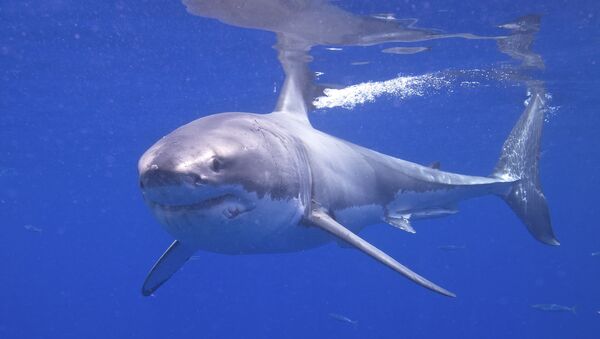The data shows that the creature, dubbed Unama'ki, made the 2,000 mile trek from the south of Nova Scotia in Canada - where scientists tagged it with a tracker in September - all the way down the US East Coast to Florida over the past couple of months. The name Unama'ki means “land of the fog” in the Mi’kmaq language spoken by the indigeous Mi’kmaq people of Nova Scotia and refers to the Canadian province.
— OCEARCH (@OCEARCH) September 30, 2019
The shark, which weights 2,076 pounds and is 15 feet and 5 inches long, pinged in several locations across the East Coast, including Atlantic City in New Jersey and Myrtle Beach in South Carolina, before making its way to the Florida Keys, a string of islands between the Atlantic Ocean and the Gulf of Mexico.
"As a big mature female, Unama'ki has the potential to lead us to the site where she gives birth and exposes a new white shark nursery," Ocearch is quoted as saying by Newsweek.
According to Ocearch's website, when a tagged shark’s fin breaks through the water’s surface, the tracker attached to the shark sends a signal to a satellite orbiting the Earth, which then transmits the animal’s estimated location back to the organization.
Ocearch has been tracking great whites for years to determine where they breed in the Atlantic region. The organization’s research has found that great whites typically migrate to Florida, the Carolinas and Georgia during the winter months.
Researchers also suspect that there are two groups of white sharks in the Atlantic that congregate in either Massachusetts or Canada during the late summer and early fall months.
"So in the study of the white shark in the northwest Atlantic, we're tracking these big animals all the way from Atlantic Canada to all the way down in the Florida peninsula," Robert Hunter, Ocearch's chief science advisor, is quoted as saying by Newsweek.
"Something fascinating that we've noticed is that there are some animals that go to the Cape Cod area in the summertime to feed. And then there are others, that have bypassed cape cod and come up Nova Scotia to feed. So right now we are looking at the possibility of two distinct groups or subpopulations of white sharks in the northwest Atlantic,” he added.

